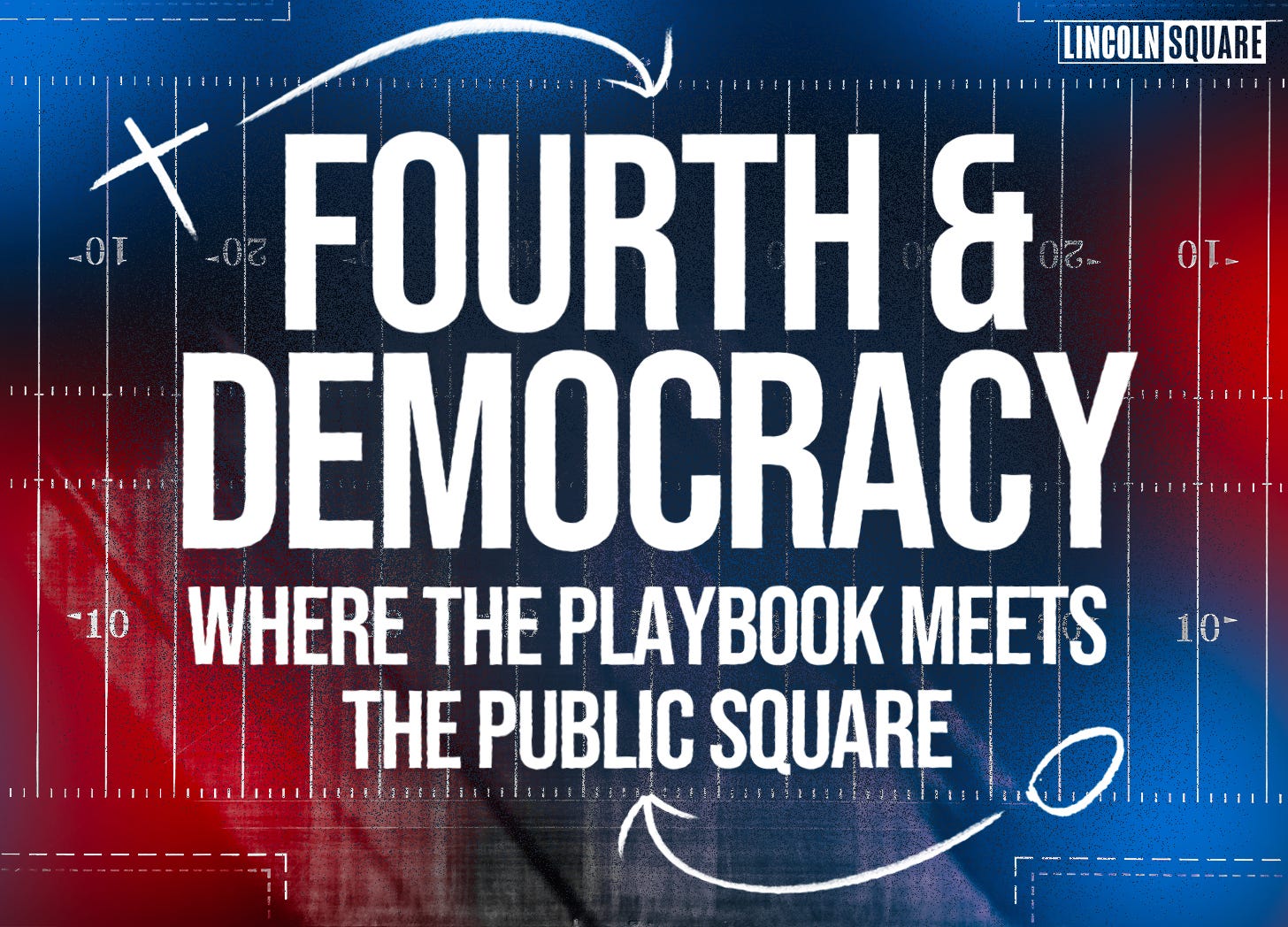Fourth & Democracy | Shutdown Hypocrisy Politics, Games Behind the Games & People Are Awake
Welcome to another edition of Fourth & Democracy.
Government shutdowns aren’t supposed to be vacation time for elected officials. They’re supposed to be when the adults in the room batten down the hatches and fix what’s broken – not sneak off on taxpayer-funded golf trips or throw military birthday parades for Fox News hits.
But here we are: a president p…




